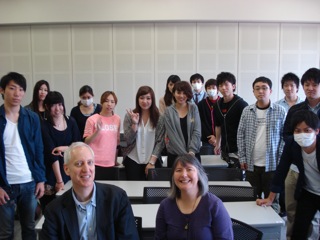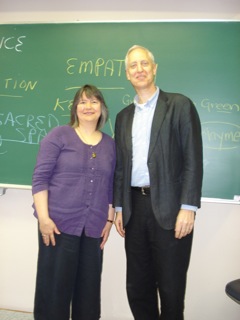Haruki Murakami, Monkey Business, & Translation
(from The New Yorker)
Lost in Translation?

Last month, Haruki Murakami published a new novel in Japan. Before anyone could read it, the novel broke the country’s Internet pre-order sales record, its publisher announced an advance print run of half a million copies, and Tokyo bookstores opened at midnight to welcome lines of customers, some of whom read the book slumped in corners of nearby cafés straight after purchase. But this time, the mania was déjà vu in Japan—a near-replica of the reception that greeted Murakami’s last novel, “1Q84,” three years ago. The response was news to nearly no one. Except, maybe, Haruki Murakami.
“The fact that I have been able to become a professional working novelist is, even now, a great surprise to me,” Murakami wrote in an e-mail three days before the release of “Colorless Tsukuru Tazaki and His Years of Pilgrimage.” He added: “In fact, each and every thing that has happened over the past 34 years has been a sequence of utter surprise.” The real surprise, perhaps, is that Murakami’s novels now incite a similar degree of anticipation and hunger outside of Japan, even though they are written in a language spoken and read by a relatively small population on a distant and parochial archipelago in the North Pacific.
(continue reading)









